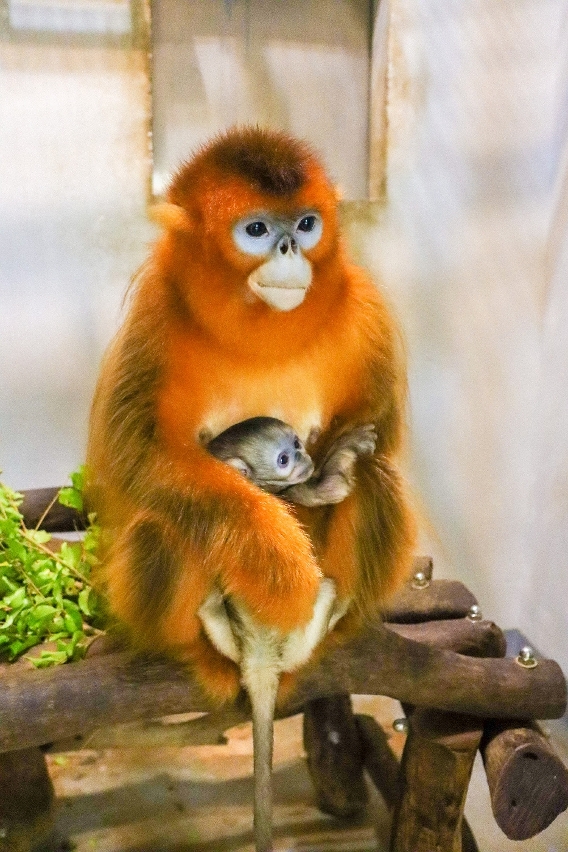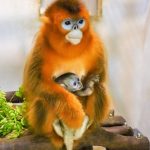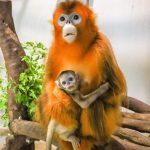 The female golden snub-nosed monkey living in Seac Pai Van Park gave birth to another male golden snub-nosed monkey on March 1.
The female golden snub-nosed monkey living in Seac Pai Van Park gave birth to another male golden snub-nosed monkey on March 1.
The female golden snub-nosed monkey living in Seac Pai Van Park gave birth to another male golden snub-nosed monkey on March 1. The baby monkey is now in stable condition and makes loud sounds, taken care of in the arms of his affectionate mother. The animal care and medical team of the Municipal Affairs Bureau (IAM) will continue to closely monitor the physical condition of the mother and the baby monkey.
In response to the birth of the baby monkey by the female golden snub-nosed monkey, the IAM care team has strengthened the health observation of the mother and the baby monkey to ensure that they are in good physical and mental condition. At the same time, in order to meet the needs of the mother monkey during her lactation period, the team has promptly adjusted her meal menu and increased the food portions so as to provide the mother monkey with sufficient nutrition to feed and care for the baby monkey.
The golden snub-nosed monkey “Lian Zi”, who just turned 2 years old and is now an elder brother, was very curious and interested in the baby monkey. He keeps trying to interact with his younger brother, while the mother monkey takes care of the two brothers in a heartwarming manner. At present, the golden snub-nosed monkey family lives in the Pavilion of Rare Animals of Seac Pai Van Park. When members of the public visit the baby monkey, they must keep quiet at the venue to avoid affecting the mother and baby monkeys.
Currently there are four golden snub-nosed monkeys in Seac Pai Van Park. Among them, a pair of adult golden snub-nosed monkeys were sent to Macao from the mainland after IAM signed a cooperation agreement with Qinhuangdao Wildlife Rescue Centre in 2017. According to the relevant agreement, IAM will return the four golden monkeys to the mainland in batches orderly on an “as is” basis, so that they can continue to be part of the conservation and breeding programme.



